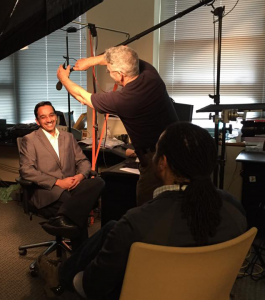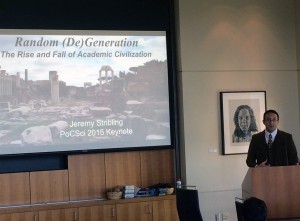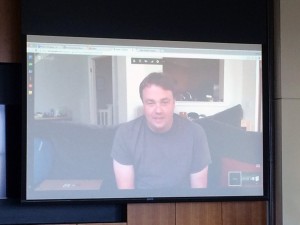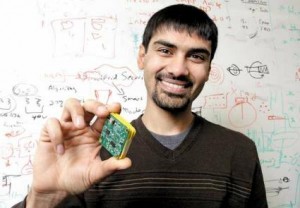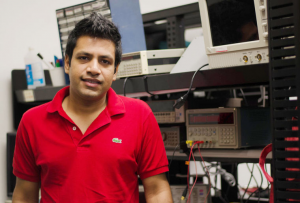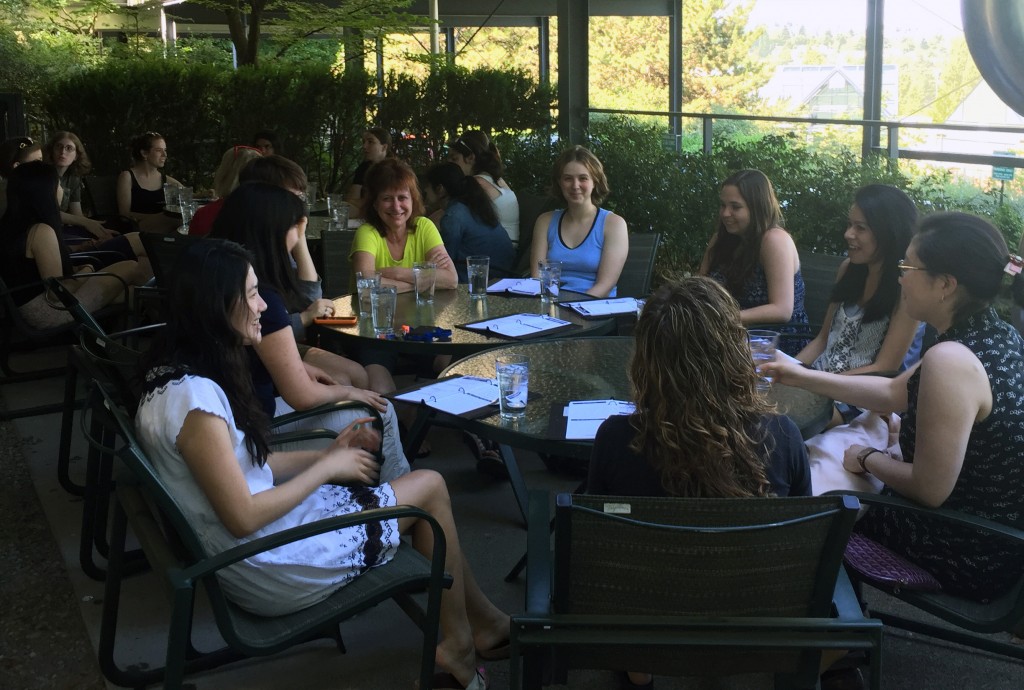 This afternoon, UW CSE graduate student and faculty women took advantage of another ho-hum we’re-so-tired-of-this sunny 80 degree afternoon for a group tea / happy hour that filled the patio of the UW Club. Read more →
This afternoon, UW CSE graduate student and faculty women took advantage of another ho-hum we’re-so-tired-of-this sunny 80 degree afternoon for a group tea / happy hour that filled the patio of the UW Club. Read more →

Tea time!
Join UW CSE’s Raj Rao and NBC Learn for a Twitter chat on the mysteries of the brain
On Wednesday, June 10th, CSE professor Raj Rao, director of the National Science Foundation’s Center for Sensorimotor Neural Engineering, will participate in a Twitter chat hosted by NBC Learn as part of its “Mysteries of the Brain” series.
Raj spoke to NBC Learn about brain-computer interfaces as part of a collection of eight videos, produced in partnership with the NSF, that explore the latest research into how the brain works with the help of leading scientists in the field. NBC Learn plans to make lesson plans for middle and high school students, developed by the National Science Teachers Association, available for use in connection with the series later this summer.
Watch the video series, including the interview with Raj and a demonstration of his brain-computer interface research, here.
Join the Twitter chat with Raj and his fellow brain researchers Wednesday afternoon from 3:00 to 4:00 pm Pacific (6:00 to 7:00 pm Eastern) using the hashtag #ExplainTheBrain and by following @NeuralE_Ctr on Twitter.
Read past blog coverage of Raj and his research here, here and here. Read more →
UW CSE’s Richard Newcombe, Dieter Fox and Steve Seitz win Best Paper Award for DynamicFusion at CVPR
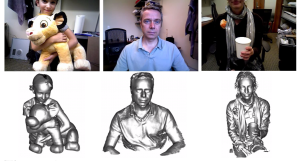 Another team of UW CSE researchers has captured Best Paper honors. This time, postdoc Richard Newcombe, professor Dieter Fox of the UW Robotics and State Estimation Lab and professor Steve Seitz of CSE’s Graphics and Imaging Laboratory (GRAIL) are bringing home the glory with their paper “DynamicFusion: Reconstruction and Tracking of Non-rigid Scenes in Real-Time” at IEEE’s International Conference on Computer Vision and Pattern Recognition (CVPR) currently taking place in Boston, MA.
Another team of UW CSE researchers has captured Best Paper honors. This time, postdoc Richard Newcombe, professor Dieter Fox of the UW Robotics and State Estimation Lab and professor Steve Seitz of CSE’s Graphics and Imaging Laboratory (GRAIL) are bringing home the glory with their paper “DynamicFusion: Reconstruction and Tracking of Non-rigid Scenes in Real-Time” at IEEE’s International Conference on Computer Vision and Pattern Recognition (CVPR) currently taking place in Boston, MA.
DynamicFusion is the first dense SLAM (simultaneous localization and mapping) system capable of reconstructing dynamic scenes in real-time. It moves beyond systems such as KinectFusion, an approach to real-time 3-D reconstruction that, while a major advance, assumes that the observed scene is static. DynamicFusion generalizes KinectFusion’s dense, real-time tracking and mapping to yield detailed and complete reconstructions of subjects in motion. The research team demonstrated the system using a variety of subjects in different scenes, including snuggling with a stuffed animal, making funny faces, drinking tea, and performing “jazz hands.”
View the YouTube video demonstrating how DynamicFusion works here. Read the winning paper, selected out of more than 2,000 conference submissions, here.
Congratulations to Richard, Dieter and Steve! Read more →
UW CSE and EE researchers generate buzz with new “power over Wi-Fi”
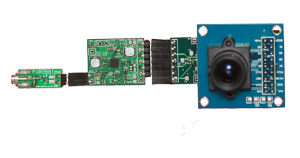 Last week, the CSE blog reported on an exciting new research project led by Shyam Gollakota, who heads UW CSE’s Networks & Mobile Systems Lab, and CSE & EE professor Josh Smith of the Sensor Systems Lab, plus a team of CSE and EE graduate students and postdocs. The project, affectionately dubbed “PoWiFi,” harnessed energy from Wi-Fi signals to wirelessly power battery-free devices – in this case, temperature and camera sensors – and to wirelessly recharge batteries.
Last week, the CSE blog reported on an exciting new research project led by Shyam Gollakota, who heads UW CSE’s Networks & Mobile Systems Lab, and CSE & EE professor Josh Smith of the Sensor Systems Lab, plus a team of CSE and EE graduate students and postdocs. The project, affectionately dubbed “PoWiFi,” harnessed energy from Wi-Fi signals to wirelessly power battery-free devices – in this case, temperature and camera sensors – and to wirelessly recharge batteries.
In addition to MIT Technology Review, a host of other media outlets have picked up the story. Read more about the international buzz generated by PoWiFi courtesy of Wired, BBC News, Christian Science Monitor, Popular Science and PC Magazine (to name a few).
Read the research paper here. Congratulations to Shyam, Josh and the entire team – Vamsi Talla, Bryce Kellogg, Ben Ransford and Saman Naderiparizi! Read more →
Katharina Reinecke joins UW CSE
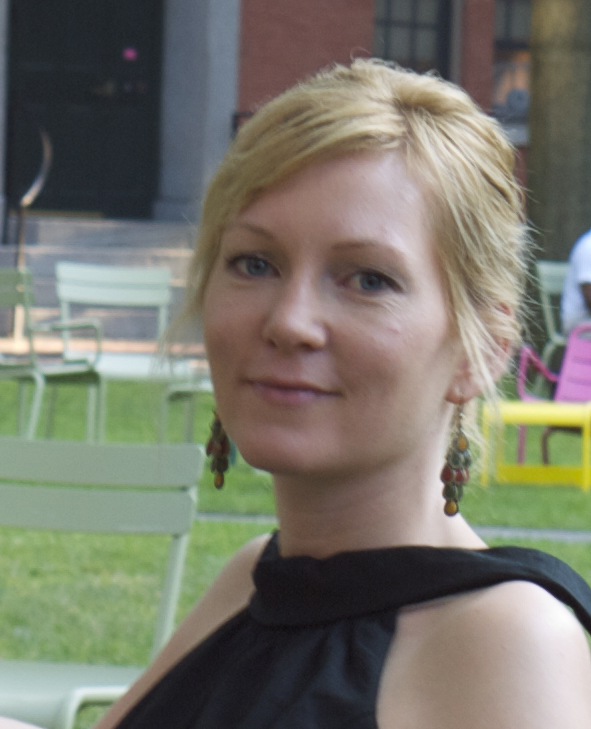 Katharina Reinecke, currently Assistant Professor of Information and Computer Science at the University of Michigan, will be joining UW CSE next fall.
Katharina Reinecke, currently Assistant Professor of Information and Computer Science at the University of Michigan, will be joining UW CSE next fall.
Katharina’s research focuses on Human-Computer Interaction, specifically on understanding the cultural implications of user interfaces and designing interfaces that are culturally adaptive. She is particularly known for developing LabInTheWild, an online virtual lab for conducting behavioral studies, which she has used to obtain data from over 2.5 million visitors from over 200 countries. Before joining Michigan, Katharina received her Ph.D. in Computer Science from University of Zurich, Switzerland in 2010, followed by a three-year postdoc at Harvard.
Welcome, Katharina!
(We had previously announced the recruiting this year of Ras Bodik, Sham Kakade, Sergey Levine, and Dan Ports. More news to follow!) Read more →
Tom Alberg, Steve Singh on UW CSE
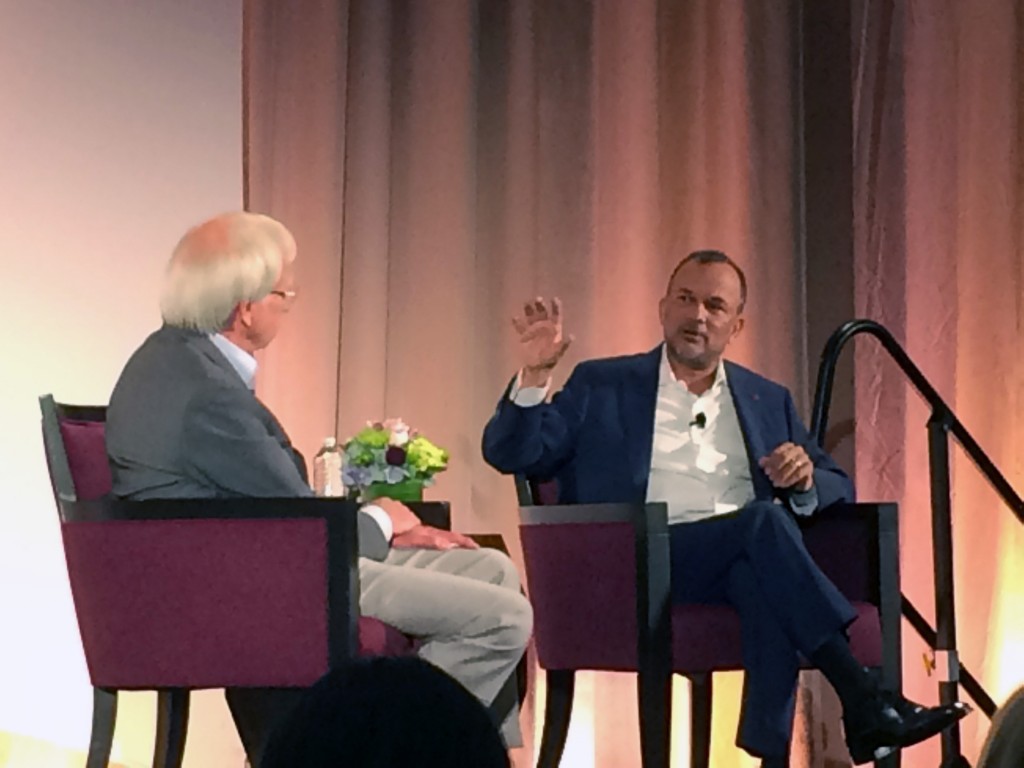 At today’s annual “State of Technology” luncheon sponsored by the Tech Alliance and attended by 750+ regional leaders, Madrona Venture Group’s Tom Alberg interviewed Steve Singh of Seattle’s Concur Technologies, acquired by SAP in late 2014 for $8.3 billion.
At today’s annual “State of Technology” luncheon sponsored by the Tech Alliance and attended by 750+ regional leaders, Madrona Venture Group’s Tom Alberg interviewed Steve Singh of Seattle’s Concur Technologies, acquired by SAP in late 2014 for $8.3 billion.
UW CSE came up several times in the conversation:
Regarding funding for increased enrollment: “UW CSE could double its degree production and Concur would hire all of them!”
Regarding funding for a new building: “It’s a few tens of millions of dollars in a $40 billion annual budget. Give me a break!”
Thanks, Tom and Steve, for your tremendous support! Read more →
15th annual UW CSE Symposium on Potentially Computer Science (PoCSci ’15)
Today marked the 15th annual UW CSE Symposium on Potentially Computer Science (PoCSci ’15) “The Premier Sham Conference for Potentially Computer Science Research.”
PoCSci is the conference that in 2002 – its second year – revolutionized the field of Potentially Computer Science research through Doug Zongker’s work “Chicken Chicken Chicken: Chicken Chicken” (YouTube video of Zongker’s presentation at AAAS 2007 here). Fittingly, Zongker was honored this year with the PoCSci “Test of Time” award.
The keynote was delivered by Jeremy Stribling, the creator of the SciGen random paper generator. While SciGen has been featured in venues ranging from Nature to Reddit, Jeremy was, by his own admission, a mere shadow of last year’s PoCSci keynote speaker, Dr. James Mickens, recipient of the 2040 ACM A.M. Turing Award.
Our thanks to the PoCSci organizing committee, Brandon Holt and Irene Zhang. Read more →
The next paradigm of computing: UW’s Shwetak Patel and Mayank Goel featured in UW Daily
UW Daily reporter Arunabh Satpathy writes:
“A house that knows when you’re inside. A cellphone that doubles as a spirometer. A sensor that gauges how much energy is being consumed and by what device. These are some of the applications of a developing field of computing called ‘ubiquitous computing,’ or ‘ubicomp.’
“Shwetak Patel, professor in the Computer Science & Engineering and Electrical Engineering, defines ubicomp as ‘the next paradigm of computing.’
“‘Computing is going to be pushed into everywhere into the environment,’ Patel said.”
Shwetak goes on to explain how continuous interaction between humans and sensors has transformed the automobile. He also talks about the potential benefits of extending these interactions into the home where, for example, sensors could be used to monitor the health of a person inside.
The article also quotes UW CSE Ph.D. student Mayank Goel, whose research focuses on novel uses of mobile phone sensors. One of his projects is focused on using a smart phone’s accelerometer to stabilize the keyboard and reduce texting errors. Another project, SpiroSmart, turns a smart phone’s microphone into a spirometer for measuring lung function.
Read the entire article here.
Learn more about the UbiComp Lab here. Read more →
UW’s “PoWiFi” could power the Internet of Things, says MIT Technology Review
 A UW research project that seeks to power the Internet of Things using Wi-Fi signals – dubbed “power over Wi-Fi” or “PoWiFi” for short – is the topic of a recent paper and an article in MIT Technology Review. The project was developed by a team that includes CSE professor Shyam Gollakota, CSE and EE professor Josh Smith, EE Ph.D. student Vamsi Talla, CSE alum (and current EE Ph.D. student) Bryce Kellogg, former CSE postdoc Ben Ransford, and EE Ph.D. student Saman Naderiparizi.
A UW research project that seeks to power the Internet of Things using Wi-Fi signals – dubbed “power over Wi-Fi” or “PoWiFi” for short – is the topic of a recent paper and an article in MIT Technology Review. The project was developed by a team that includes CSE professor Shyam Gollakota, CSE and EE professor Josh Smith, EE Ph.D. student Vamsi Talla, CSE alum (and current EE Ph.D. student) Bryce Kellogg, former CSE postdoc Ben Ransford, and EE Ph.D. student Saman Naderiparizi.
From the article:
“The idea is simple in concept. Wi-Fi radio broadcasts are a form of energy that a simple antenna can pick up. Until now, Wi-Fi receivers have all been designed to harvest the information that these broadcasts carry. But Talla and co point out that there is no reason why the energy shouldn’t be harvested as well. The question is how much can be gathered in this way. And therein lies the challenge …
“The problem is that Wi-Fi broadcasts are not continuous. Routers tend to broadcast on a single channel in bursts. This provides enough power for the sensor but as soon as the broadcast stops, the voltages drop … That gave Talla and pals an idea. Why not program the router to broadcast noise when it is not broadcasting information and employ adjacent Wi-Fi channels to carry it so that it doesn’t interfere with data rates.”
Calling the results “impressive,” the article explains how the researchers used their new PoWiFi system to wirelessly power a battery-free temperature sensor and a camera without compromising network performance, in real-world conditions. They also were able to recharge coin-cell batteries using PoWiFi from distances of up to 28 feet.
The article concludes:
“The ability to deliver power wirelessly to a wide range of autonomous devices and sensors is hugely significant. But the real icing on the cake here is the ability to do this with ordinary technology that is commonly available all over the developed world and beyond. As such, PoWi-Fi could be the enabling technology that finally brings the Internet of Things to life.”
Read the complete article here.
Read a PDF of the team’s paper, “Powering the Next Billion Devices with WiFi,” here. Read more →
Seattle Times: “Legislature should fund UW computer science expansion”
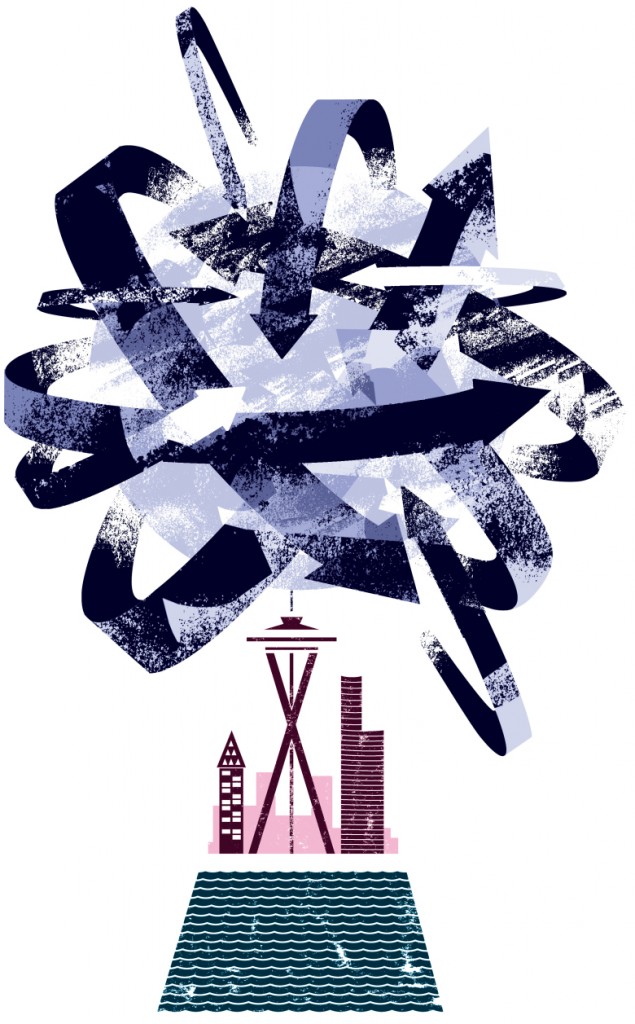 The Seattle Times editorial board writes:
The Seattle Times editorial board writes:
“WHILE computer science and engineering jobs boom in Washington, the state is graduating too few of its own residents in this field, which plays such a crucial role in the state’s fortunes.
“The University of Washington argues persuasively that it needs more space to address the demand both from students and employers.
“The state Legislature should appropriate funds this year to help pay for a new 130,000-square-foot computer science and engineering building.
“The university asked lawmakers for $40 million of the $105 million total, with plans to raise the remaining costs from private donors. So far, the Senate’s capital budget set aside $32 million, while the House budget appropriated only $6 million …
“Washington is fortunate to have a thriving technology industry. State lawmakers and educators must enable more homegrown students to prepare for and seize these opportunities.”
Read more here. Read more →

